"incredibly inspirational" ~one of my friends, jokingly

ULTIMATE INTERVIEW/SELECTION WEEKEND GUIDE – TIPS FOR THE UWC APPLICATION PROCESS

I have promised to do this for way too long now and never actually got around to it- but since I’m at home in lockdown and college doesn’t start until August, I’m finally writing up my tips for all things regarding the UWC application, interview and selection weekend. I think, since I got rejected the first time I applied and I went through the whole process twice, I probably have at least some useful insights to share. !DISCLAIMER! Remember that these are all based on my own experience going through the Austrian selection process- the one in your country might be different. These are all things I wish someone had told me before starting/during the application process, so I really hope that you’ll find some of these helpful😊
1. THE WRITTEN APPLICATION

Your first step towards your greater goal of attending a UWC! It may seem daunting, but this is the one thing in this whole process that you have complete control over, so really you should take full advantage of that fact! You can spend as little or as much time as you like writing and tweaking your application and have family or friends help you. Interviews, selection weekends, group activities etc. is where other people come in, but this step is under your control, so don’t stress yourself out too much! 😊 Here are my top tips for the written application.
1. Get your letters of recommendation early
Take it from someone who left it until it was almost too late. It doesn’t feel good to have to (politely) stress out your teacher/whoever is writing you a recommendation because the application submission deadline is soon, and it will definitely not make them feel any more inclined to write it for you if you’re forced to pressure them to do it quickly. Just figure out who you want to ask for recommendations as early as possible and make sure they have all the time they need to write you a great letter!
2. Don’t compare yourself to others
It’s so important to be honest with yourself. Know yourself, know how long it takes you to write an essay and how many times you might need to edit it to be satisfied. It doesn’t matter whether that one UWC youtuber said you should take 3 months to write the essays, or that maybe that one friend of yours who is really good at essay writing said they wrote them in one day. Just because you’ve read or heard somewhere that someone wrote it in 2 days doesn’t mean you should and just because you heard that someone took all summer to write them doesn’t automatically mean they’re good. Obviously, it’s easy to give the tip “Start early!” but I think it is more effective to just be realistic and honest with yourself. Personally, I wrote up my application and edited everything in the span of 1-2 weeks, and it worked for me that way. But, let’s say you tend to be a perfectionist and also want your mom, your best friend and your dad’s brother’s cousin’s daughter to read over your stuff, starting early is probably a good idea.
3. Don’t be afraid to contact your national committee
Applications vary from country to country so I can’t talk about any specifics, but generally, if there is anything at all that you are confused about, don’t be afraid to write an email to your NC! They will be happy to assist you, and there is no such thing as stupid questions (cliché but true in this instance). A personal example would be that the first time I applied, I wasn’t sure which things on the application should be answered in German and which in English, but instead of contacting my NC I just kinda did it and changed it again and after submitting was scared that I did it the wrong way. Don’t be like me! If something is unclear, ask for clarification. It will spare you a lot of stress.
4. Just send it!
Send off your application, even if you have doubts and think it may not be good enough. First of all: you have nothing to lose and everything to gain! And second of all, I assure you that everyone hitting that submission button doubts themselves at least a little bit. I sure as hell did.
2. INTERVIEWS

So now you’ve made it to the interview- congrats! I know that this is a nerve-wracking part of the application process, but just try to see it as a way to share more about what kind of a person you are with the National Committee.
1. Be yourself
I know what you’re thinking. Wow, how cliché, thanks, never even thought about this totally obvious thing! I agree, it’s cliché, but if you take away one thing from this whole blog post it should be this. Now, this should also be taken with a grain of salt. Yes, you shouldn’t try to act any different, for example if you’re usually a bubbly person-it’s okay, you don’t have to act all serious. If you’re a naturally funny person, you could include a little (appropriate) joke here and there even though we tend to think this is an extremely formal setting (which yes it kind of is, but again this may vary from national committee to national committee). However , “be yourself” doesn’t mean “stay in your comfort zone”. As an introvert, I know it can be hard to speak up, and I’m not saying you should change and act like an extrovert. What you have to make yourself realize is that this interview is about you. These people (the number of people interviewing you will vary) are sitting there to listen to you talk and occasionally ask some questions, they are trying to find out what kind of a person you are beyond those stiff essays from the application. If you’re an introvert, it’s fine to not talk loudly or whatever, but be confident about your opinions and don’t be afraid to talk about yourself! And even if you’re not, just act like you are confident and before you know it you will feel that way too (fake it till you make it). Believe me, I know it can feel super weird to just talk about yourself, but in some ways that is the point of an interview.
2. Don’t be scared of the interviewer(s)
They aren’t trying to trip you up. They will ask questions about your essays and things you indicated on your application in order to get an idea of who you are as a person. They might challenge something you said, but just stay true to your opinion, they don’t want to hear a certain answer they want to get to know you. If they ask you to elaborate on something, you should see it as a great opportunity to talk even more about something that you obviously already like discussing, since otherwise you (hopefully) wouldn’t have chosen it for your essay! In my case, the interviewers even made a joke here and there. The whole thing isn’t quite as formal as you might think.
3. Be passionate
I kind of touched on this earlier, but again: these people are there to listen to you talk. They will ask you questions about stuff you wrote on your application to find out more about you and whether or not you are a good fit for UWC (and whether or not UWC is a good fit for you.) They want to know what kind of a person you are, what makes you get out of bed in the morning and what things light up your eyes when you talk about them. No matter what you are passionate about, make sure they know it and feel it!
4. Don’t read too much into facial expressions
Seriously, don’t. During my interviews a lot of my stress came from me overthinking the interviewer’s facial expression. You don’t know what they’re thinking! They are just listening intently or taking notes, if one of them looks bored to death don’t let it affect you or discourage you. They are there to listen and take notes and maybe think of additional questions, but during the interview there is absolutely no time for value judgements anyway. Just do your thing and try not to read into it too much.
5. Be honest
This one is kind of similar to “Be yourself”. Don’t try to psychoanalyze the interviewers to answer in a way that you think will please them. They aren’t looking for a specific answer from you, they genuinely want to know your honest thoughts. If they phrase a question weirdly and you’re like ‘okay maybe I should answer it differently…’ No, stop right there! Stay true to what you think and what you believe in. Be honest in giving your opinions. Also, be ‘honest’ (maybe that is the wrong word) in terms of your feelings. UWC is an intense experience, that can be hard to adjust to and they want to make sure to send people who they think will be able to work through that and deal with it, which means they might ask you personal or emotional questions that could strike a chord. It’s okay to be emotional in that case, I was asked a very personal question and got teary-eyed. It’s totally fine to say “This is a hard question, please give me a second to think about it” or something along the lines of that.
6. Don’t try to find out what they asked the other people
When you’re sitting there waiting for your turn and someone who just had their interview comes out, don’t ask that person what questions they were asked. The questions you get are based on what you wrote in your application, so there’s no point since they most likely won’t even ask you that question. It will only make you more nervous.
3. GROUP ACTIVITIES/SELECTION WEEKEND

1. Arrive early
Of course, being early is always a good thing for these kinds of situations, but as an introvert this truly made a big difference for me. The first time I applied, I had really bad luck and ended up arriving late to the selection weekend. Picture this: 15 year-old, very introverted me opening the door to see groups of people seated at tables, already deep in conversation with one another and since I was the only person left, once I had arrived everyone got up and the activities started straight away. This led to me being super ‘stuck in my shell’ and stressed out from the get-go. The second time I applied, I made sure to be (maybe even too) early, which enabled me to be calmer since I wasn’t stressing about having to find my way in a big city I don’t know too well, I wasn’t stressing about whether or not I’d be late and make a bad impression, and I got to be the first one to sit down at the table and then have a chill introduction and conversation with the first person who arrived after me, and then the next etc.
2. Don’t be afraid to talk in group activities
After I received my rejection the first time round, I also received an email with feedback and insight as to why I didn’t make it into the final selection. It said something along the lines of: “We often had the impression that you wanted to say something but in the end you didn’t. We know that you have opinions, and we would have loved to hear them more often.” If you are a naturally ‘charismatic’ person you probably don’t have to worry too much about this, but for my fellow quieter peeps: just dive head in! Make a conscious mental note to SAY SOMETHING, to force yourself if you have to, during group activities, to contribute in any way, don’t be scared of what the other applicants might think of what you’re saying because, frankly, they don’t matter that much. Say what you’re thinking, if you are playing a group game and you have an idea for a strategy that might work, propose it to the rest of the group! It might not work, but that’s not what matters. What’s important is that you are contributing and trying to get the whole group to succeed by providing ideas and that you can show that you can work with others. UWCs are all about sharing ideas and brainstorming together, trying new things and tweaking what doesn’t work to try and find solutions to problems. That’s what they are trying to ‘simulate’ in these group activities, so speak up when you have an idea, even if it’s just a small one.
3. “Who wants to start?”
You do! Or at least I think you should. At least once or twice. On my first selection weekend, we had activities in small groups where we would get some sort of an ethical dilemma and had to do a ranking for example. In the end we would all go around in a circle and share our ranking with the group. What happened was, everyone ended up kind of having very similar rankings and I always ended up saying mine last, so I was left pretty much awkwardly repeating what we already heard 5 times. I learned from that experience, and during my second selection weekend, when it was time to share our ranking and one of the ‘evaluators’ asked “Who wants to go first?” I just went and said “I can go!”. For people who don’t want to seem too dominant this may seem daunting, but I promise you, in practice it’s not as bad as you think. It shows you are not afraid to say what you think and you don’t need to run your rankings by the other people first.
4. Stick to your opinion
In group activities and games, it may be that you suggest something and everyone is on board right away. But, it’s also very possible that the others in the group are skeptical of your idea and quietly look at you with confused looks. If this happens, don’t despair! The worst thing to do in that situation is drop your shoulders and quietly say “But we can do something else too”. Instead, calmly try to explain what you were thinking and why this might work or how you arrived at the conclusion that this might at least be a step in the right direction compared to the last thing you all tried to do. “The definition of insanity is doing the same thing over and over again and expecting a different result.” In those games, it’s good to have everyone contribute new ideas, even if the idea itself isn’t the solution, someone else might bounce off of it and think of something new and so you will arrive at the finish line much faster. Obviously, don’t be unnecessarily stubborn and insist on your idea because you think it’s the very best- remember that it’s a group effort and you have to compromise.
Just don’t instantly give up on something you said just cause people aren’t agreeing to it right away.
MOST IMPORTANTLY: HAVE FUN!

The selection weekend is your first opportunity to experience the UWC spirit, and you will truly meet some great people there who share the same values as you. You will have great conversations over dinner, question your own beliefs over challenging discussions and just get to hang out with really interesting people. Above all, it should be an enjoyable time, and even though I was very anxious during my first application process, I still had so much fun and I hope you will too.:)
BEING REJECTED If you are rejected but you are not too old yet, APPLY AGAIN NEXT YEAR! In the Austrian system, you are allowed to apply twice.
If you are 15 and get rejected, APPLY AGAIN NEXT YEAR, and I cannot emphasize this enough. I’ve heard before that people think “Oh, if I didn’t make it this time then why should I get in next year?” but just look at me- I didn’t even get into the final selection the first time I applied. People evolve, things happen, you change. A year is a time where a lot of stuff can happen, you can collect new experiences and work on yourself, so don’t just write it off. Also, if you are applying a second time it is definitely a positive, since the National Committee will see how much you want this and how dedicated you are.
5 thoughts on “ULTIMATE INTERVIEW/SELECTION WEEKEND GUIDE – TIPS FOR THE UWC APPLICATION PROCESS”
yES STELLA new blog post finally!! p.s. from another recent grad, cannot stress the last apply again point enough. some years UWC simply might not have a scholarship available for the school you want to go to = aka why you might not get a spot! some of the most important people to me are those who reapplied, and i cannot imagine what life would’ve been like had they not done so 😉
yes fully agree!! now don’t mind me, i’m just over here waiting for a new blog post on thenotoriusdreamer 😉
- Pingback: Applying to UWC for a second time – what made all the difference? – Stella's Chronicles
can you send me the pdf form
Hi, sorry but I’m not sure what form you are referring to?
Leave a Reply Cancel reply
Your email address will not be published. Required fields are marked *
Notify me of follow-up comments by email.
Notify me of new posts by email.
- Kale by LyraThemes.com.
Scholarship Essays

United World College Scholarship Essay Example - Personal Statement
A personal statement (within 300 words) explaining why you are interested in attending a uwc school/college and reflecting on uwc's mission and values, what you might contribute to the school/college and what you would hope to gain from the experience.
About a year ago, I received an immense opportunity to go on an international excursion with 43 other nations to Gothenburg where I had to represent my nation and my culture. In other words, it was an adventure of a lifetime for me, one that taught me about multiculturalism, diversity, responsibility and self-dependence; one that I would like to take again. So I began my hunt for greater opportunities that could once again let me experience the magic behind multiculturalism and more importantly, help shape myself into a better person by being more open to diversity.
I had the incredible luck to come across UWC's website during one of my hunts, and was instantly enticed by what each school had to offer. Cultural exchange, the challenging IB curriculum, community service, extracurricular activities and plenty of time to have fun -all these are basically everything I could ask for in a journey of two years, specially being a person who likes to keep busy. Moreover, it seems incredible to me that so much can be done and learnt in this time span, and I'm definitely eager to take this ride.
In order to contribute to the UWC community, I believe I have the requisite skills and characteristics that would help make the two years in college productive and successful. To begin with, I am naturally comfortable with diversity and curious about different worldviews and belief systems, so I plan to learn a lot about the different cultures as well as let others know about mine. Furthermore, I am particularly keen to contribute to various social services and community projects because I want to make use of the experiences and knowledge I have gathered from working in different non-profit organizations throughout my life. Lastly, having been a sportsman all my life, I wish to be involved in any of UWC's sports team which I can help lead to victory; where I can form a bond with other players from different social and cultural backgrounds, and where I can make every player recognize their worth and help them face challenges together.
From experiencing two years at a UWC, I hope to achieve a deeper level of intercultural understanding so that I can become more globally engaged. I also aspire to gain meaningful social relationships across culturally diverse groups as well as learn to be more compassionate and understanding from doing the CAS program and similar service works. All in all, I am hoping to have the time of my life in these two years which will be a journey of self exploration, adventures and lots of learning.
Original Source: Essay Forum
United World Colleges (UWC) Application Essay 2015 help
“Please write a statement of not more than 300 words explaining why you are interested in attending a UWC school or college. Describe both what you might contribute and what you would hope to gain. If desired, you may include a description of your background, family and any experiences you have had in meeting people from other backgrounds than your own.”
The UWC movement and mission connected to me on a deeper level. Reading the UWC mission and seeing the lifestyle of UWCers I knew it was place where I needed to be, learn and share. When I discovered UWC through presentations, short courses, articles and alumni, I knew it was a remarkable opportunity to challenge myself both academically and personally. I want to learn and share with others and I know UWC will give me the tools to prosper and to create a positive impact in the world. I’m not able to live by the UWC mission because I’m not encircled by people who are passionate to make changes. I don’t feel I’m surrounded by as much diversity as I need to contribute to a vibrant education inside and outside the classroom like UWC. What also motivated me to apply is the possibility of receiving two years of IB education, guaranteed to be an active environment with vigorous academics, extra-curricular and CAS, an environment I would flourish in. The UWC movement appealed to my dreams of using business techniques to find solutions for social problems, expand my knowledge about the environment and breaking down misunderstandings and stereotypes held around the world. I urge to expand my knowledge and contribute to the diversity of the environment, and UWC is an impeccable match. I want to learn how to perceive everything from different perspectives, which I’m confident I can learn at UWC. I’m eager to learn and hear more of people’s stories and the world I’m unaware of. With this unique experience, people will no longer see a little dot on the map when they think about the Cayman Islands, but a face they remember from an excellent ambassador of the Cayman Islands representing the culture and traditions, named Derricka.
TOTAL: 298 words But I really think I need to add the “description of your background, family and any experiences you have had in meeting people from other backgrounds than your own.” part I wrote below.
Like UWC, two other things that have a special place in my heart are my mother and football. They both have allowed me to experience different backgrounds other than my own. My mother is from a tiny island off the coast of Nicaragua; San Andres, Colombia and her culture and experiences as a Colombian, still surprise me 16 years later. Football has allowed me to be in many tournaments where we stayed in hotels with teams from all over the world where things like even their hairstyles were so different from ours!
This is a comment I received, should I take it into consideration and remove the IB statement?
"Derri, you know what? If you first discuss your family, background, or experiences that had you mingling with people from diverse backgrounds, you can tie that discussion in with the reasons why you are interested in applying to UWC. A parallelism of the world that you come from and the world that you look forward to experiencing at UWC will be the most perfect way to provide an answer to the prompt. You could allot something like 150 words for that and then allot the last 150 to the discussion of how you plan to contribute to the UWC community and how you think you will gain from that contribution.
You don’t have to explain to the reviewer about where you heard about UWC and what the alumni told you about the school. Those first few lines are really not necessary in the essay. You are just telling the reviewer useless information. Useless because it does not tell him anything that he needs to know based upon the prompt requirements. You should revise that opening statement to directly answer the prompt instead. Focus the opening on my suggestions in the previous paragraph and you should have a more attuned response to open your essay with.
Try not to tell the reviewer that one of the main reasons you decided to apply was the fact that you get a free 2 year education out of this. That is obvious information that all of the applicants are after and therefore, is not a strong reason to seek UWC approval. In fact, that is the weakest reason and should not show up in the essay at all. All of the other reasons that you presented were sufficient enough.
I agree with the fact that you need to refocus on the prompt since you primarily answer “what you hope to gain” and not “what are you going to contribute”. In addition, I don’t believe the other information you want to add is necessary since you do talk about the lack of diversity and how others in your area aren’t very passionate. I agree that you should get rid of the part where you talk about the 2-year education because the information is obvious and it isn’t going to make you stand out as an applicant. Personally, I would replace that information with something more meaningful to me by adding very short anecdote as to how being in an unmotivated community has held me back from creating change. If you have to delete some words I would get rid of the introduction sentences because they aren’t needed since the purpose of the question is to get a short response.
Good luck! Elena
@xxelenaxx I re did the entire thing. Tell me which one sounds better for the prompt.
- As aforementioned above ^ OR
2.Eleanor Roosevelt once said “I think, at a child’s birth, if a mother could ask a fairy godmother to endow it with the most useful gift, that gift would be curiosity.” I consider curiosity to be what has made me the person I am today. Bombarding someone with questions should be my middle name. I always thought that being curious was a negative trait. Being “inquisitive” or ‘”entrometida” as my Colombian mother would say was always something I had mixed feelings towards. However, this curiosity often fed my hunger of always wanting to learn or do something innovative, a thrilling feeling of satisfaction. Being “entrometida”, I found out about UWC through presentations, short courses, articles and alumni and I knew it was a remarkable opportunity to challenge myself both academically and personally. The UWC movement and mission has made me realize that this is a place where it’s okay to be curious. The UWC values appealed to my dreams of using business techniques to find solutions for social problems and breaking down misunderstandings and stereotypes held around the world. I want to learn how to perceive everything from different perspectives, which I’m confident I can learn at UWC. I have fortunately had many opportunities to interact with people outside of my background, the chief one being my mother. Originally from a tiny island off the coast of Nicaragua, her cultures and experiences as a Colombian still surprise me 16 years later. Like my mother and curiosity, another thing that has a special place in my heart is football. Football has allowed me to be in many tournaments where we stayed in hotels with teams from every corner of the map! UWC is an innovative and multicultural environment, one of the best methods of education. Being placed in this type of environment with diverse people of different cultures and experiences would help me to become a more open-minded, empathetic and patriotic individual. With this unique experience, people will no longer see a little dot on the map when they think about the Cayman Islands, but a face they remember from an excellent ambassador representing the culture and traditions and empowering others to share the UWC values, named Derricka.
Beautiful! The new one is so much better and it gives me a sense of you while still addressing the prompt! With an answer like that you will be set apart from the rest of the applicants which will make them notice you. I hope that you get in!
I just want to thank you so much for your advice and constructive criticism! @xxelenaxx
Hey, I have a similar problem too. Anyone who’s willing to revise my essay? Thanks!
POPULAR STATES
Search sat scores, search act scores, search gpa’s, subscribe to our newsletter.
Stay informed with the latest from the CC community, delivered to you, for free.
CONNECT WITH US
© 2023 College Confidential, LLC. All Rights Reserved.

- How to Apply
- Application Information
- Application Inspiration
Five steps to a completed UWC application
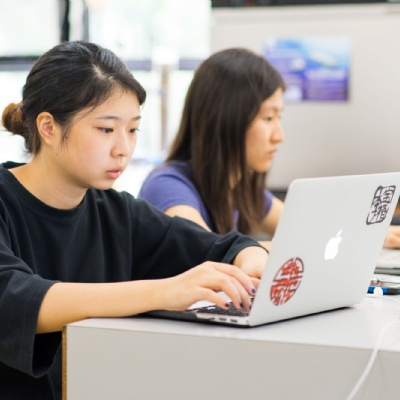
The first step towards your future as a change-maker could come from making the decision to spend two years of your life studying at a UWC school. The second step is being offered a place. But you can't get to that second step if you don't complete the application form.
Our application process seeks to get to know the real you. So taking your time and breaking that application down into stages can help you to ensure that you give it your best shot.
In this post we suggest five steps that you can take - perhaps over five days - to completing and submitting your application, and taking that next step to an exciting future ahead. Don't worry - it doesn't take five days to complete the form. This structure just helps you to spread the work over a week so that you can continue to also enjoy your studies and passions alongside working on your application.
Remember, there are two main routes through which you can apply, so be sure to understand the deadlines and process for the route that you're following:
- Global Selection Programme
- Application through your country's UWC n ational committee
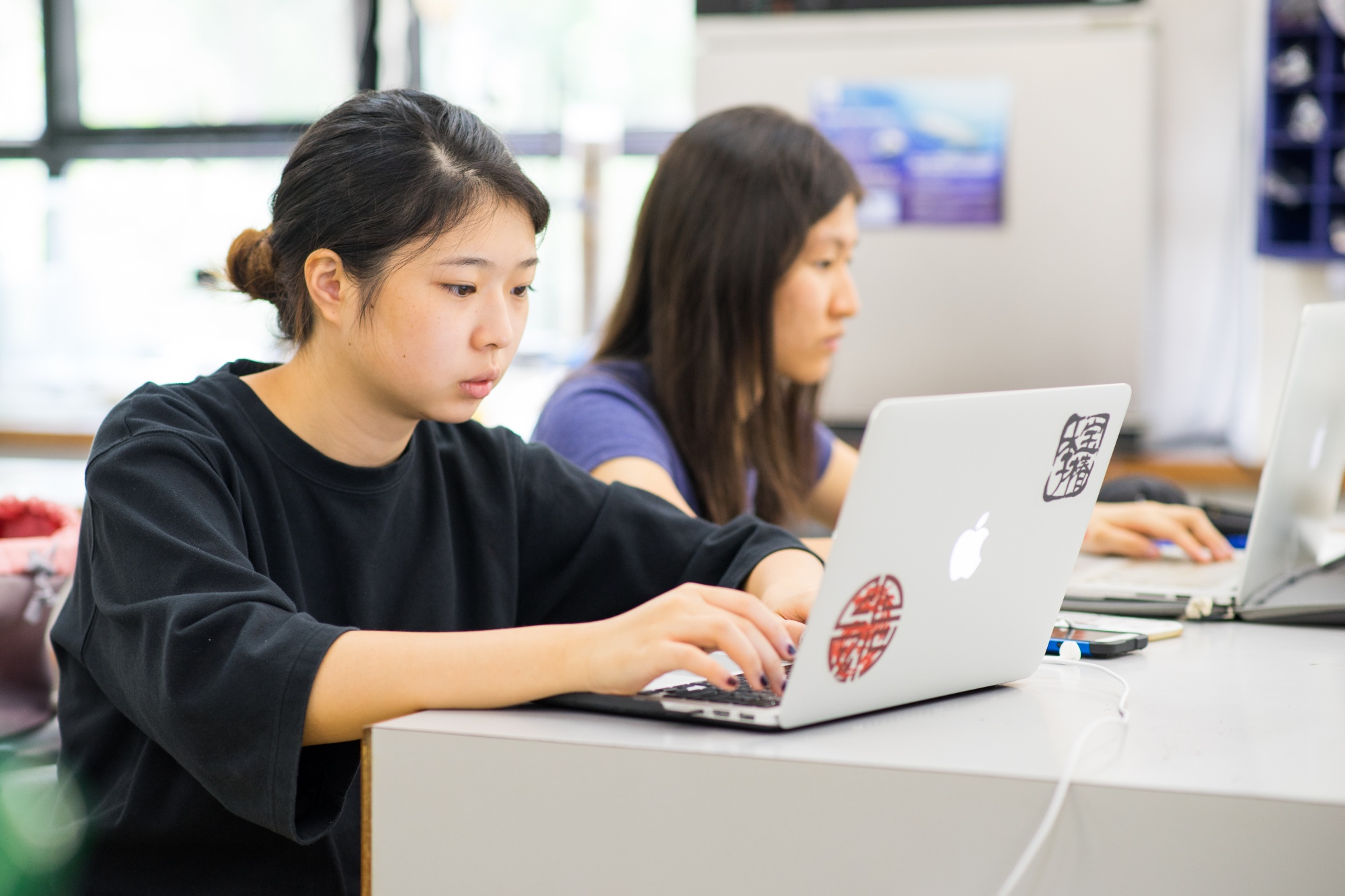
Handouts and Online Resources for Students
Writing at the University
- Beyond the 5-Paragraph Essay
- Writing Tips for Transfer Students
Pre-Writing
- Breaking Down Your Reading Assignment
- Reading Essay Prompts
- Dealing with Writer’s Block
Writing: Getting Started
- How to Write a Good Introduction
- Outlining and Structuring a Paper
- Structuring Paragraphs
- Thesis Statements — “Although …, my opinion is …” Thesis Structure
- Thesis Statements — What? How? Why? Structure
- Crafting Thesis Statements: Podcast and Handout
- Tips for Writing an Honors Thesis or Capstone Project: Presentation and Handout
- Outside Resources for Writing
Writing: Sentences & Transitions
- Sentence Building Blocks
- Relative Clauses
- Conditional Sentences
- Sentence Transitions
Revising for Content and Organization
- How to Be Clear in Your Statements
- Summary vs. Analysis in Paragraphs
- Reverse Outlining
- Integrating Quotations
- Knowing your Conclusion is “Done”: Presentation & Handout
Proofreading/Grammar
- Proofreading Strategies for Common Errors
- Presentation: Editing for Common Grammar Issues
- Rules and Editing Tips for Articles and Noun Forms
- Prepositions
- Active vs. Passive Voice
- Pronoun-Antecedent Agreement
- Rules for Using Commas
- Common Sentence Structure Problems
- Common Grammar Mistakes
Citing Your Sources
- MLA Formatting: In-text Citations & Works Cited Page
- APA Formatting: In-text Citations & Reference Page
- Chicago Style: Footnotes/Endnotes & Bibliography Page
Writing Personal Statements & Statements of Purpose
- Writing a Personal Statement or Statement of Purpose
- 3 Pre-Writing Activities: Getting Started on Your Personal Statement or Statements of Purpose
- Additional Resources: Personal Statements & Statements of Purpose
Resumes & Curriculum Vitae (CVs)
- Resume Basics
- Checklist for Evaluating Your Resume
- Checklist for Evaluating Your Curriculum Vitae (CV)
- Additional Resources: CVs, Resumes & Cover Letters
Writing Research Papers
- Writing Research Paper Introductions
- Writing the Literature Review for Research Papers
- Pre-Writing Activity: The Literature Review
- Checklist for Evaluating Your Literature Review
- Writing Up Research (Discussion Section & Additional Tips): Presentation & Handout
Writing a Research Proposal
- Writing a Research Proposal
- Sample Texts — Parts of the Research Proposal
Tips for Doing Research
- WI+RE Research Tips
- Facts and Figures
- Undergraduate Admissions
- Graduate Admissions
- Non-traditional Admissions
- Pay Deposit
- Undergraduate Majors
- Graduate Programs
- Honors College
- Study Abroad
- Professional & Continuing
- Online Programs
- Career Planning
- Living on Campus
- Clubs & Organizations
- Spirit & Traditions
- About Harrisonburg
- Pay Your Deposit
- Office of Financial Aid
- Freshman Scholarships
- James Madison University -->
- University Writing Center
- Schedule an Appointment
- Meet the UWC Team
- Locations and Hours
- UWC Mission, Vision, and Values
- UWC Advisory Board
- Writing Guides and Handouts
- Faculty and Staff Resources
- Undergraduate Writing Consultants
- Course-Embedded Consultants
- Graduate Assistants
- Internships
- Faculty Associates
- UWC Consultant Field Manual
- Presentations & Publications
- Hall of Fame
- JMU Learning Centers
Personal statements are short essays often written as part of an application (for graduate study, study abroad, a job, an internship, a scholarship...). Some personal statement instructions ask specific questions and offer specific length requirements; others leave the topic and length more open and allow you to figure it out yourself.
Personal Statements Overview : this UWC resource introduces types of personal statements, surveys a common structure, and identifies pitfalls.
Annotated Personal Statement : this UWC-created companion piece to the personal statements overview above points out the moves and choices in a student's personal statement for a graduate school application.
Two-part UWC video series for anyone applying to a graduate or professional school: how to write thoughtful, eloquent personal statements that will help you stand out in a competitive field.
Part I: Writing Personal Statements : strategies for composing personal statements, including how to choose what to write about, how to break down essay writing into a manageable series of tasks, and how to avoid common pitfalls. UWC Writing Specialist Lucy Bryan Malenke anticipates your concerns in this video (full of useful slides along the way).
Part II: Faculty Panel Discussion: Personal Statements : JMU Graduate school faculty members who have served on selection committees share invaluable advice for applicants. They discuss what qualities most impress them, what they're tired of reading about, and tips for addressing poor academic performance in personal statements. Although the panelists come from programs in health and behavioral fields, their reflections and suggestions will help anyone working on an application essay.
PowerPoint tutorial on writing personal statements (a UWC-created resource)
Drafting your statement of purpose : the guidelines here are part of a suite of Purdue OWL resources focused on graduate school applications (but applicable to other purposes). Check out the menu links to the left of the page.
"How to Write a Great Statement of Purpose" : an introspective piece complete with a checklist.
General Guidelines for the Personal Statement : dos and don'ts for writing an effective statement.
Personal Statements and Application Letters : a discussion of how to prepare, draft, format, and revise your work, featuring a sample statement.
Back to Top
- Expenditures
- Accessibility
- Social Media
- Skip to primary navigation
- Skip to main content
University Writing Center
Undergraduate Students
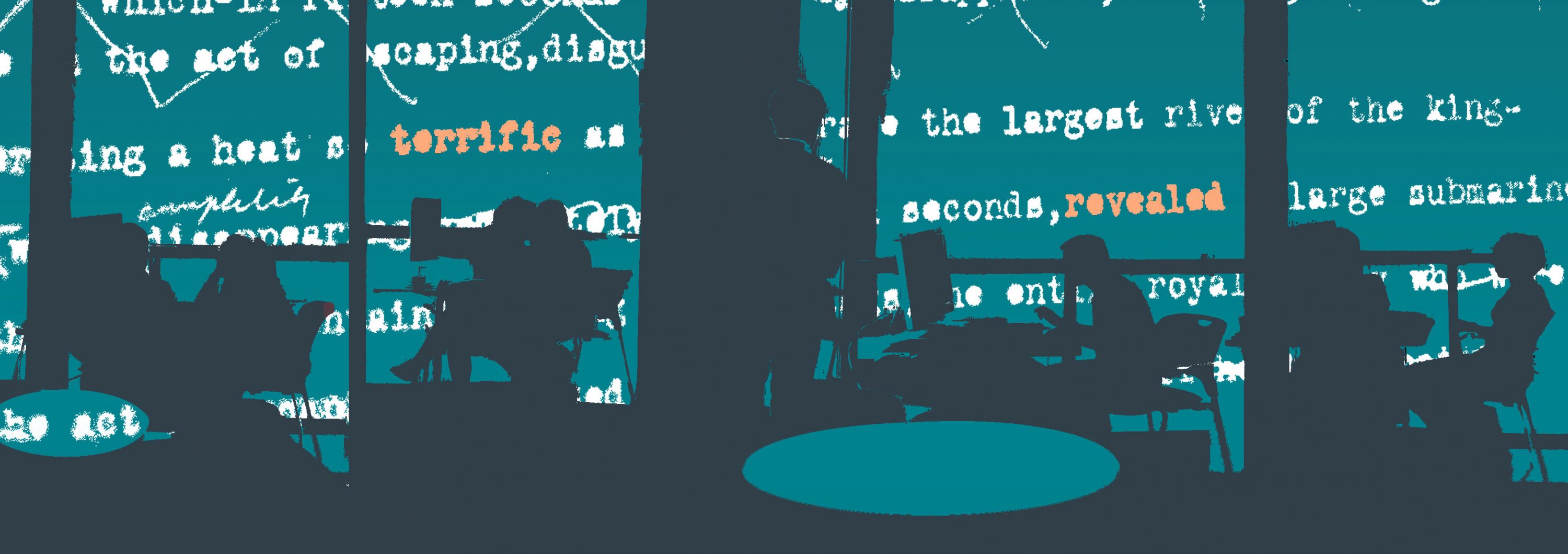
The University Writing Center was founded in 1993 to help UT Austin students become more proficient, more versatile, and more confident writers. The UWC can help students from any major, with any writing project, at any point on their college career. Writers of all abilities come here to do what professional writers do: get another person’s response to their writing.
Writing Appointments
To maximize support for online learning, we have lifted restrictions on the number of consultations students can have per semester. Find out more and schedule an appointment!
Presentations
Request a presentation for your student organization or suggest that your teacher request one for your class.
Find the full list of our resources on the main handouts page. A selection of undergrad-specific resources are listed below.
Writing Groups
We offer weekly group sessions for goal setting, progress check-ins, and sustained quiet writing to help you stay focused and accountable.
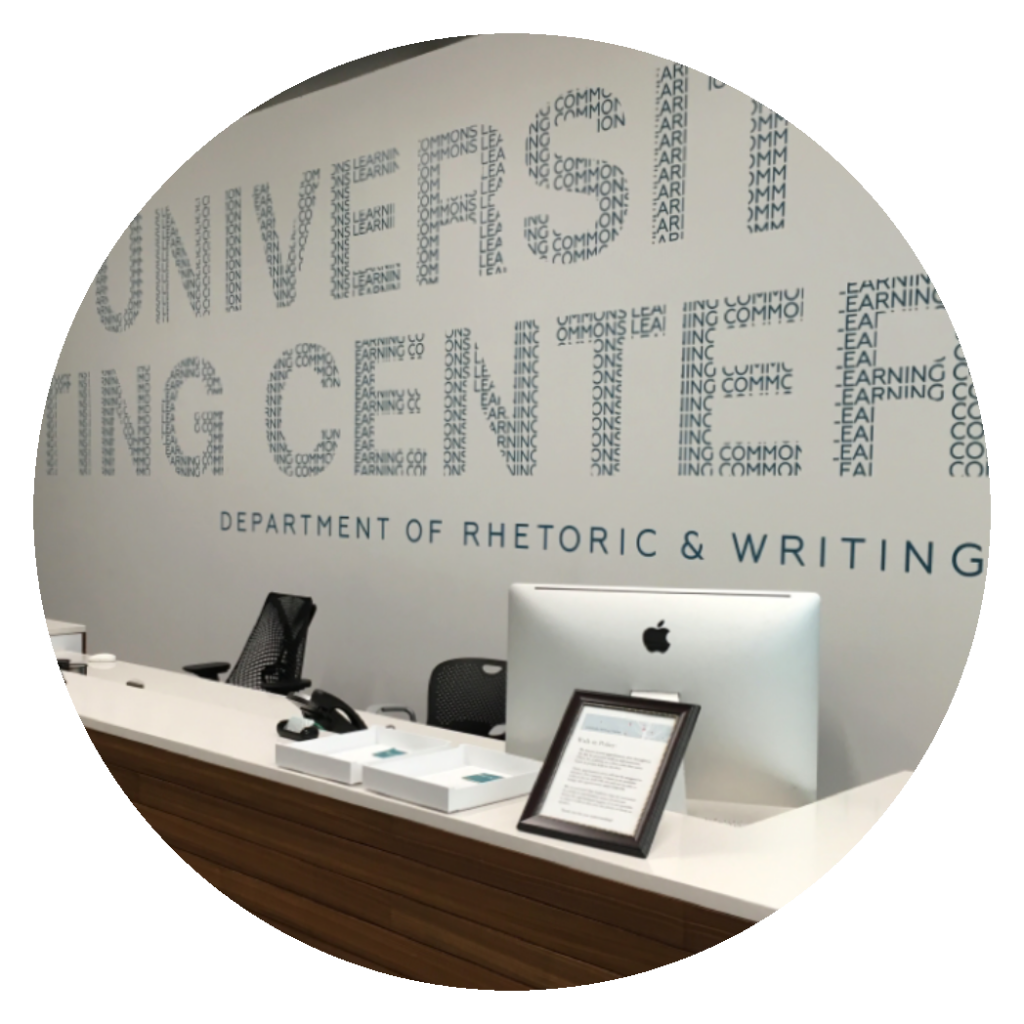
Find out more about our mission to be inclusive and accessible to all UT students.
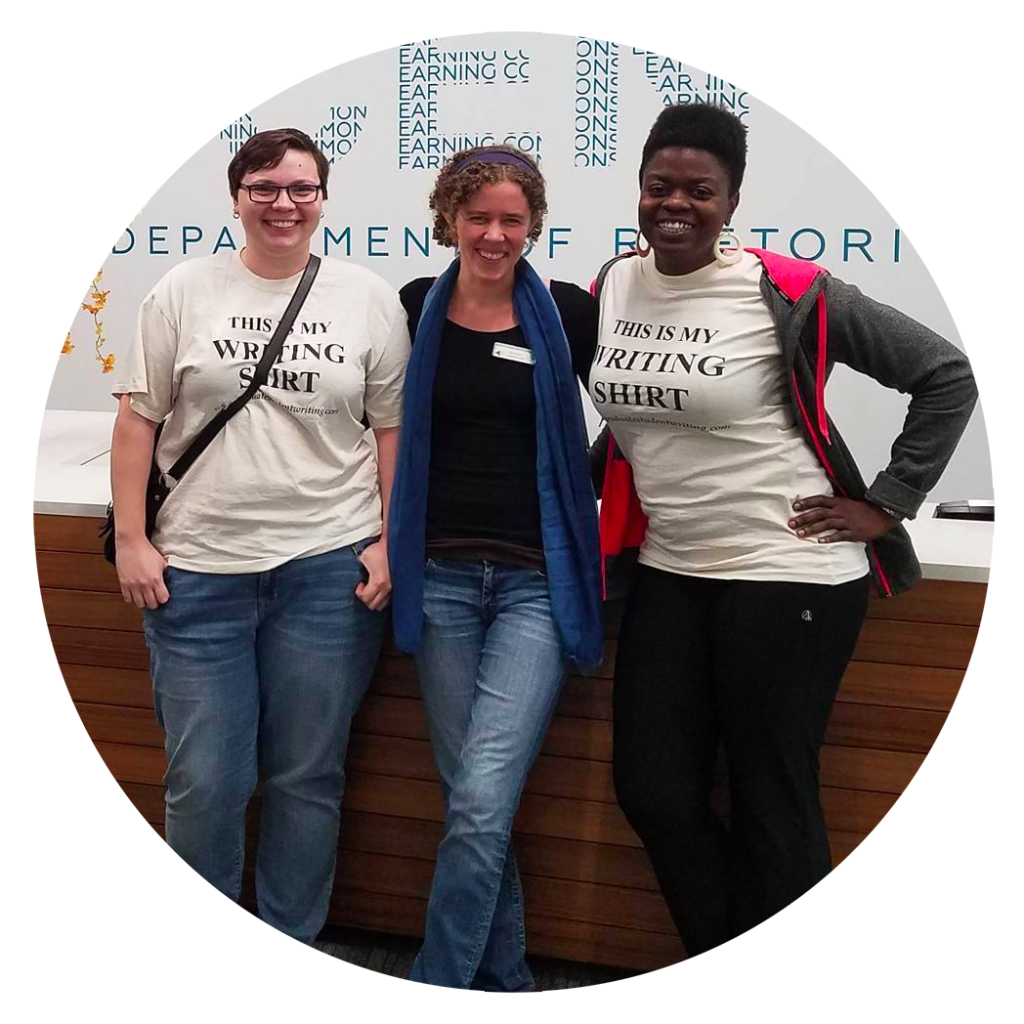
Interested in working here? Find out about our job opportunities!
Accessibility
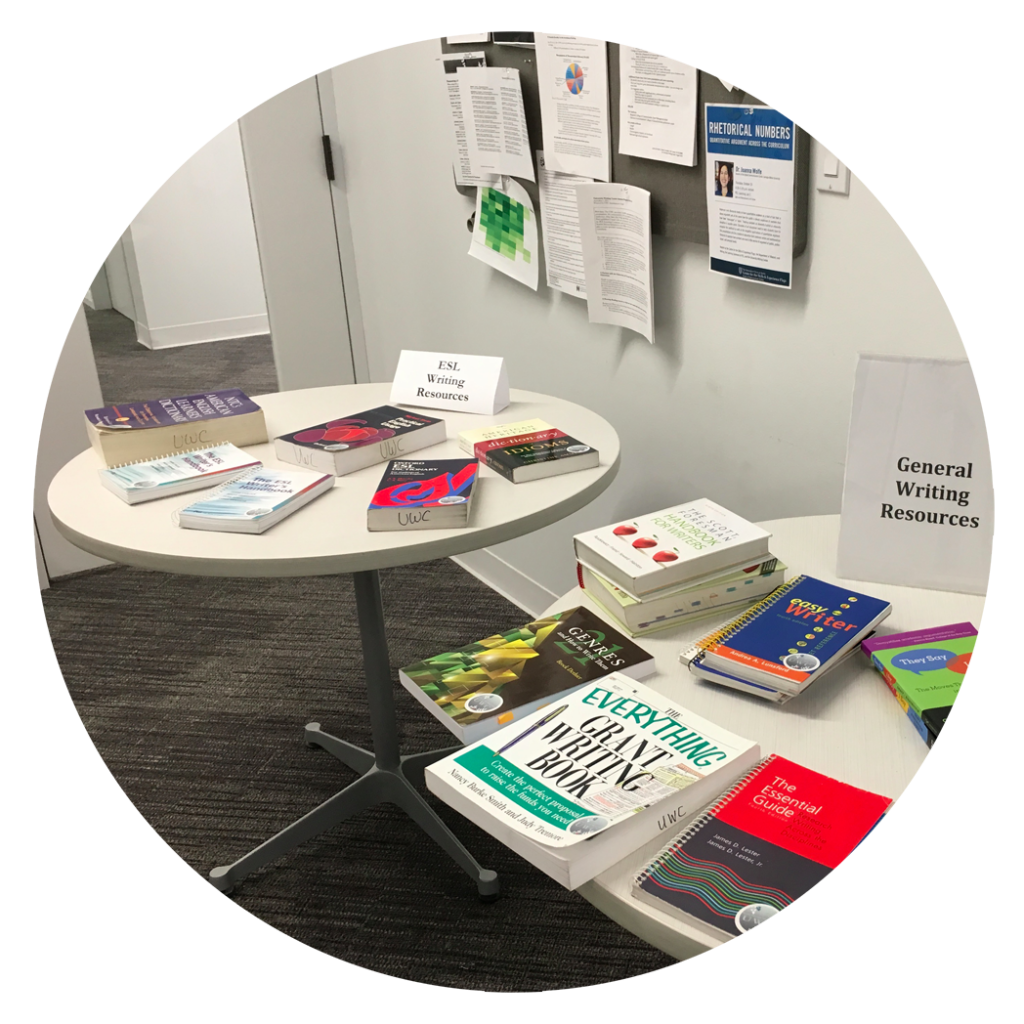
Find out more about accessibility at the UWC.
Resources for Undergrads
Additional resources.
- ChatGPT & LLMs_2023
- Code-Switching and Code-Meshing
- College Writing Myths
- Entrepreneurship Resources
- Hire an Editor
- Peer Review (45-50min)
- Peer Review (45-50min) Presenter Template
- Psychology CVs
- RHE 306 Recommended Presentations Schedule
- Resources for Multilingual Writers
- Résumé-Writing Resources
Grammar, Usage, & Punctuation
- Definite and Indefinite Articles Flow Chart
- Eliminating Wordiness
- Resisting Clichés
Research Papers and Lab Reports
- Data Presentation
- Editing Lab Reports
- Lab Reports
- Paraphrasing
- Primary and Secondary Sources
- Steps for Writing a Research Paper
- Tips for Writing Lab Reports
- Using and Framing Direct Quotations
- Writing Lab Reports (45-50min)
- Writing Research Introductions
- Writing Research Papers (30-40min)
- Avoiding Plagiarism (25-35 min)
- Avoiding Plagiarism (25-35 min) Activity
- Brainstorming
- Conclusions
- Final Revisions Checklist
- Grammarly Presentation (30-35 min)
- How to Edit Your Own Writing
- Introduction to the UWC (10-15 min)
- Introductions
- Writing in Process (15-30min)
Writing Guides
- Analyzing Poetry
- Art and Art History Papers: Formal Analysis and Comparative Analysis
- Close Reading Literature
- Cover Letters
- How to Construct and Format a Resume
- Making the Transition from High School to College Writing
- Personal Statements
- Personal Statements: Models for Generating Content
- Revising Essays and Research Papers (45-50min)
- Rhetorical Analysis
- Rhetorical Fallacies
- Sentence Clarity (45-50min)
- Transitioning from High School to University-Level Writing (45-50min)
- Writing Abstracts (45-50min)
- Writing Effective Internal Transfer Essays ( 35-45 min. )
- Writing Literature Reviews (25-35min)
- Writing Personal Statements (35-45min)
- Writing Resumes, CVs, and Cover Letters (45-50min)

- About Our Consultations
- Online Consultations
- Policies & Procedures
- Become A Consultant
- For Students
- For Faculty
- Refer a Student
- Request a Presentation
Find Resources
Planning and organizing.
Rhetorical Context Topic Development Creative Introductions Structure and Outlining Writing Conclusions
Academic Writing
Thesis Statement Three Appeals Argument Logical Fallacies Quoting vs. Paraphrasing Guide to Passive Voice (BioMedicalEditor) How to Write with Academic Voice (Walden U) Tips for Maintaining Academic Voice (Walden U)
MLA, APA, and Chicago Citations
Plagiarism and Misuse of Sources Quoting and Paraphrasing
MLA Parenthetical Documentation MLA Documentation and Works Cited Page MLA Practice Template and Examples MLA Formatting and Style Guide (OWL @ Purdue)
APA Format: Reference Page APA Format: Citing Online Sources APA Format: Parenthetical Documentation APA Format: Citing Websites APA Formatting and Style Guide (OWL @ Purdue) APA Style: Central site for the most recent APA guidelines APA basics, a video tutorial
Chicago Format: Note Method Chicago Format: Bibliography The Chicago Manual of Style Online
Links to Other Citations
AAA: American Anthropological Association Style Guide ACS: American Chemical Society Style Guide AAIP: American Institute of Physics Style Manual AMA: American Medical Association – UWC Quick Reference Handout APSA: American Political Science Association Style Guide ASABE: American Society of Agricultural and Biological Engineers Guide for Authors CBE: Council of Biology Editors Style Guide for Bibliographies and Footnotes CSE: Council of Science Editors Online Style Guide
ASA: American Sociological Association
OWL at Purdue on ASA ASA Quick Style Guide
IEEE: Institute of Electrical and Electronics Engineers
Quick Reference Guide: IEEE Style IEEE Editorial Style Manual Online

Common Assignments Across Disciplines
Grammar and punctuation.
Error Log Bare Minimum Grammar
Five Easy Comma Rules The Semi-Colon: Making Connections How to Identify and Fix Comma Splices
Dashes and Parentheses How to Choose the Right Article Article Chart Prepositions Five Serious Mistakes Proofreading Checklist Proofreading Techniques Grammar Help (English Linx) Guide to Grammar (TestDen) Teach Now: Interactive Grammar Exercises (Better English) Grammar Bytes: Useful Exercises in Grammar (Chomp Chomp)
List of print resources on grammar available at the UWC
Improving Coherence Coherence between Paragraphs Transitions Eliminating Redundancy Concision Checklist Avoiding Ambiguous Words Avoiding Sexist Writing
List of print resources on style available at the UWC
Graduate Applications and Writing
UCF Office of Instructional Resources UCF Thesis & Dissertation Formatting Preparing for the Defense Univ. of North Carolina Writing Center: Dissertation Guide Writing a Grant Proposal UCF Office of Research UCF Library: Resources for Grants Guidelines for Writing Your Personal Statement Writing Personal Statements Preparing a Conference Proposal Preparing to Present a Conference Paper
List of print resources on graduate writing available at the UWC
Job Search Writing
Recursos en español.
Topic Development – ¿Cómo redactar un tema? (Universidad de Málaga) Topic Development – Cómo exponer y desarrollar un tema (Gobierno de Canarias)
Introductions and Conclusions – Introducciónes y conclusiones (Excelsior Writing Lab) What is an introduction? – ¿Qué es una introducción? (SciELO Colombia)
Thesis Statement – Partes de una declaración de tesis (Excelsior Writing Lab) Thesis Statement – declaración de tesis (Allan Hancock College Writing Center) How to write a thesis statement – ¿Cómo formular una tesis para un texto argumentativo? (Universidad de los Andes Colombia)
Three Appeals – Ethos, Pathos y Logos (SERCA)
Logical fallacies – Falacias lógicas (XTEC)
APA Quoting and Paraphrasing – Cita Textual o directa (Universidad Nacional Autonoma de Mexico) MLA citations and quoting – MLA Citaciones en texto (Purdue OWL) Chicago citations and quoting – Guía para citar de acuerdo al Manual de estilo de Chicago (Instituto Technologico de Santo Domingo)
Passive Voice in English – La voz pasiva en inglés (ABA English) Passive and active voice in scientific writing – Cómo usar la voz pasiva y la voz activa en tus artículos científicos (Ineditum)
MLA Citations – MLA Citaciones en texto: Lo Básico (Purdue OWL)
APA General Format – APA Formato General (Purdue OWL)
How to write a research paper – Aprende cómo redactar un trabajo de investigación (EUROINNOVA) Tips for writing research papers – Consejos para escribir trabajos de investigación (Universitat Oberta de Catalunya)
Annotated Bibliography – Bibliografías Anotadas (Cornell University Library) Annotated Bibliography – Como preparar una bibliografía anotada (Universidad Ana G. Mendez) Annotated Bibliography – Bibliografía anotada (UPR Carolina)
Scriptwriting – ¿Quieres aprender cómo se elabora un guion? (EUROINNOVA) Writing a Play – CÓMO ESCRIBIR UNA OBRA DE TEATRO EN 6 PASOS (Scena Malaga) Film review writing – Cómo hacer una review en inglés (British Council)
Book review – Cómo escribir una reseña en 10 pasos (Lectura Abierta)
Literature Review – Cómo escribir una buena revisión de literatura (Enago)
Hyphens and dashes – Guiones: “hyphen” y “dash” (EF)
Punctuation marks in English- CÓMO USAR LOS SIGNOS DE PUNTUACIÓN EN INGLÉS CORRECTAMENTE (Kaplan International) Punctuation marks in English – Aprende a usar los signos de puntuación en inglés (Wall Street English)
Prepositions – Definición, uso, listado y ejemplos de las preposiciones (UPB)
Writing an essay: common mistakes to avoid – Escribir un ensayo: errores comunes que debes evitar (U Del Istmo) 20 most common grammatical errors – Los 20 errores gramaticales más comunes (Excelsior Writing Lab)
Transitions in writing – mejorando la escritura: las transiciones (U of Kansas Acceso)
Personal Statement- Cómo escribir un Personal Statement infalible (Think Ahead Education)
Curriculum Vitae (CV) – Cómo hacer un Curriculum Vitae (Universidad de Alicante) Curriculum Vitae (CV) – ¿Cómo se prepara un Currículum Vitae? (Universidad National de Cuyo)
Cover Letter – ¿Cómo hacer un cover letter? (Crehana) Cover letter: Qué es y como crearla en perfecto inglés (Cambridge)
University Writing Centre: English Studies: UWC Mission Statement and Guidelines
- UWC Frequently Asked Questions
- UWC Mission Statement and Guidelines
- Student Research Paper Assignment Calculator
- Blue Flamingo Literary Festival
- Advice to Improve Your Writing Skills
UWC Mission Statement
The primary mission of the University Writing Centre is to serve the writing needs of all students at the University of The Bahamas. A secondary mission involves serving the writing needs of the UB community and, in the near future, the needs of the wider island community.
In order of priority, the UWC's first operating principle is to encourage students to take and maintain a positive attitude towards their writing. The UWC aims to assist students in college preparatory courses in developing their writing skills in order to proceed to college level English courses, and it also aims to work with any other student at any stage of the writing process.
A second principle is that the writer does his or her own writing. Facilitators will not write papers or be used as proof-readers for homework assignments. Facilitators will, using common tutoring procedures, guide the student writer through the prewriting and drafting processes that lead eventually to the finished essay. The goal is to improve the writer and the writing, not perfect it.
A third principle is that in one-to-one tutoring, higher-order concerns (like invention, finding sources of content, thesis generation, structuring and developing ideas with specific, concrete support) take precedence over lower-order ones (like syntax, grammar, mechanics, dialectal differences, etc). Students in the final stages of a draft may request help with specific grammatical concerns, but facilitators will address these areas only after higher level concerns are discussed. Exercises that assist understanding of lower order concerns also may be used to improve students' understanding of various grammatical concerns.
The mission of the UWC is fulfilled when the student or client is satisfied that he or she is more confident about writing effectively and reading his or her work critically. The focus, therefore, is always on improving the skills of the writer through the specific sample of writing.
LRC Rules and Guidelines for Students
Students who need help with essays or the writing process:
- Must make an appointment by registering and signing up in the online scheduler (our database) at: mywco.com/ub . The appointment session will take place in the UWC in Room F8. Each session generally runs for 30 mins. If your essay or paper is more than 5 pages long, please book two concurrent 30 minute sessions.
- Must bring relevant material with them, i.e. the assignment and/or instructions, a CLEAN copy of the document to be reviewed (only 1 per session), specific questions/concerns.
- Should not be more than ten minutes late for an appointment.
- Students who are more than ten minutes late will lose the time slot to another student and will have to make another appointment online.
- Students may not "leave a copy" of an essay to be "picked up" at a later time/date.
- Students who need help with essays may be limited to two sessions per week, but may come in as often as necessary to complete/review grammar exercises, read, write, study, etc.
- E-mail an electronic copy of their short papers (4-6 pages) at least 1 day in advance of their appointment.
- Submit longer research/term papers at least 2 days in advance of their appointment.
Students who have scheduled appointments may use the computers to:
- Type documents.
- Use writing/instructional software.
- Review information/web sites relating to their writing projects.
- Print their papers.
Students will not be allowed to use computers to:
- Play games.
- Chat online.
- View entertainment websites.
If it becomes necessary during the course of the semester, students will be given a two hour time limit for computer use.
- << Previous: UWC Frequently Asked Questions
- Next: Student Research Paper Assignment Calculator >>
- Last Updated: Mar 14, 2024 12:43 PM
- URL: https://cob-bs.libguides.com/universitywritingcentre
Undergraduate Writing Center
The Undergraduate Writing Center is dedicated to helping undergraduate students succeed in and outside of the classroom. The UWC offers consultations for class assignments and other writing projects, such as scholarship and graduate school applications. The UWC offers face-to-face, synchronous online, and asynchronous consultations. Learn more about these appointment options.
We can't wait to assist you with all your writing needs!
Click here to review your appointments
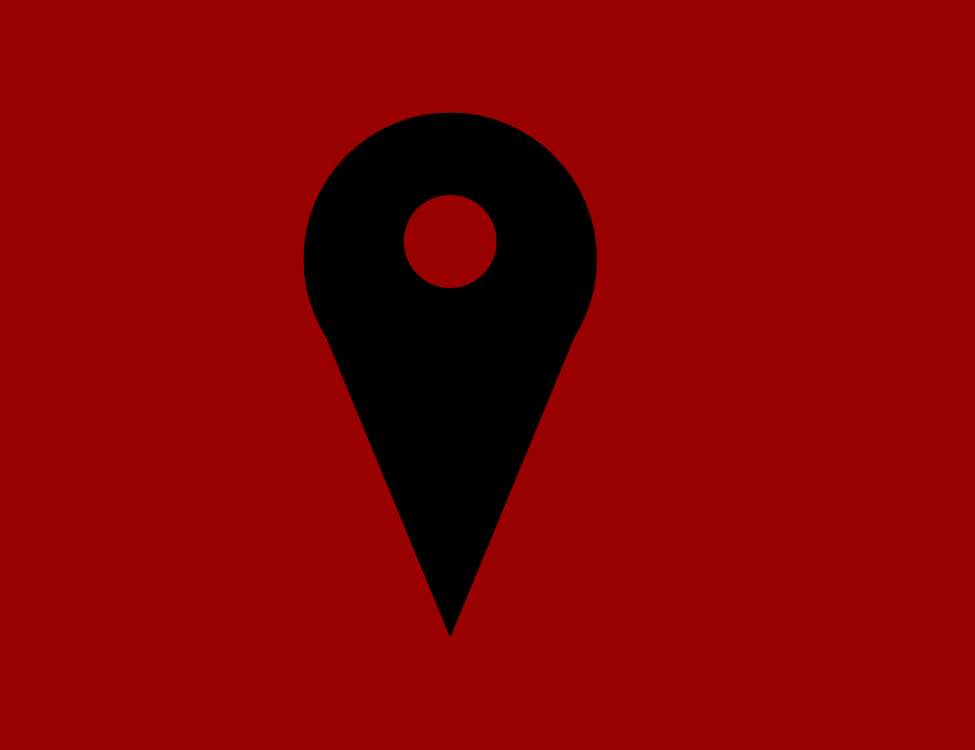
Hours and Locations

In-Class Workshops

Info Sessions

Writing Resources
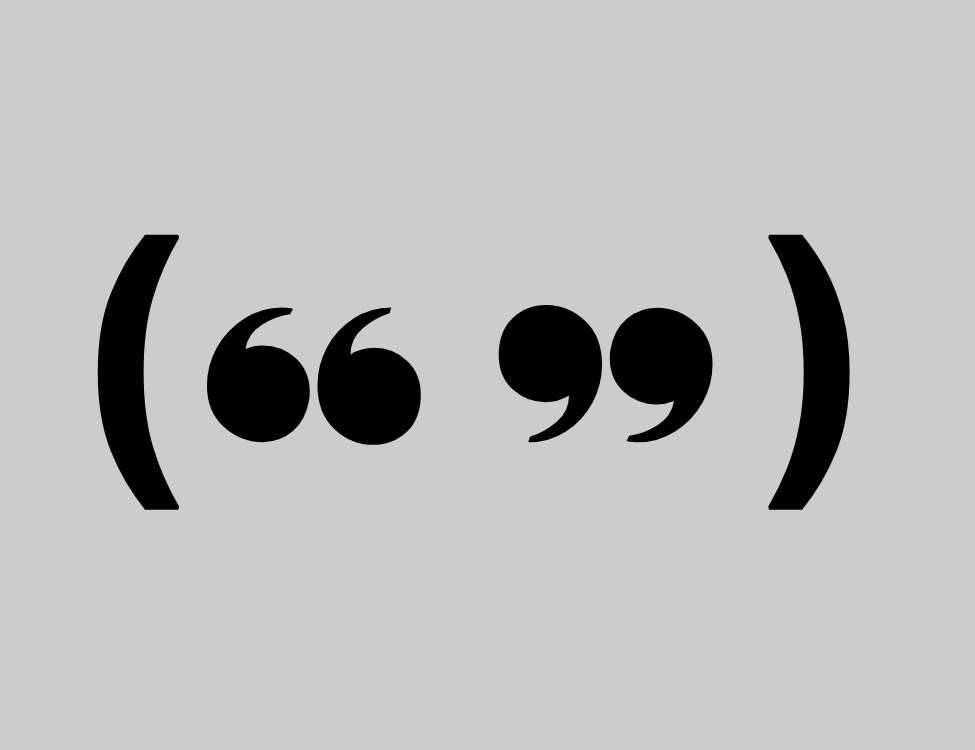
Citation Help

Video Resources

Writing Groups

Meet the Consultants
What are your chances of acceptance?
Calculate for all schools, your chance of acceptance.
Your chancing factors
Extracurriculars.
How to Write the University of Washington Essays 2023-2024

The University of Washington has two supplemental essays that are required for all applicants, and one optional, “additional information” prompt. While we typically encourage students to respond to any optional prompt, this one is actually optional, as you should only respond if there truly are unusual circumstances that have impacted your high school career. If you are applying to UW’s Honors Program, you will also have to write an additional essay.
UW is one of the top public universities in the country, with elite STEM programs and a location that offers unparalleled access to Amazon and Microsoft, among other influential companies, so you’ll want to make sure your essays truly shine. In this post, we’ll break down how to brainstorm for and write each one, so you can be sure you’re putting your best foot forward.
Read these University of Washington essay examples to inspire your writing.
University of Washington Prompts
All applicants.
Prompt 1: Tell a story from your life, describing an experience that either demonstrates your character or helped to shape it. (650 words)
Prompt 2: Our families and communities often define us and our individual worlds. Community might refer to your cultural group, extended family, religious group, neighborhood or school, sports team or club, co-workers, etc. Describe the world you come from and how you, as a product of it, might add to the diversity of the UW. (300 words)
Prompt 3 (optional): You are not required to write anything in this section, but you may include additional information if something has particular significance to you. For example, you may use this space if:
You have experienced personal hardships in attaining your education
Your activities have been limited because of work or family obligations, you have experienced unusual limitations or opportunities unique to the schools you attended. (200 words), uw interdisciplinary honors program applicants.
We want to understand your desire to learn new things and to push your education outside of the areas of learning that you are most familiar with. Tell us why this type of learning interests you and which subjects you’re excited to explore in college. (450 words)
All Applicants, Prompt 1
Tell a story from your life, describing an experience that either demonstrates your character or helped to shape it. (650 words).
This prompt is the first of the five options on the Coalition Application and is purposefully phrased nebulously to allow for a wide range of responses. You can relay any experience that reflects or shaped who you are.
To start, examine your many identities, and choose one that you want to highlight. All experiences are valid, whether they are traditional or unconventional. Focus on the things that make you different from others, and reflect on how they shaped you as a person. Remember that this is your main college essay, so be sure to pick an experience that was integral to your growth throughout high school.
This is a good chance to tell the story behind any major extracurriculars on your activity list. For example, you might write “debate team captain” as an extracurricular, but this essay is where you can recount the grit and dedication it took for you to reach that position, as you once were extremely shy. You can also use this space to explore identities that don’t appear elsewhere on your application, such as your role within your family. For example, you can write about how you tutor your younger brother in math, and how watching his face light up after understanding a new concept sparked your love of teaching.
A common theme across all college essays is “show, don’t tell.” This phrase is thrown around frequently, but is easier said than done. A few things to keep in mind when showing rather than telling are vividness and authenticity, which can be created by invoking imagery and specific details. For example, rather than saying “I like tennis and the game has always fascinated me,” try conjuring an image in the reader’s mind such as “At the start of my first official match, I gripped my trusted red racquet tightly, swaying ever so slightly from foot to foot in the ‘ready’ stance that I had practiced for years.” While the first response may be true, it is generic and can apply to any tennis aficionado. The latter response better authenticates your experiences than the former, and demonstrates your sincerity to readers.
All Applicants, Prompt 2
Our families and communities often define us and our individual worlds. community might refer to your cultural group, extended family, religious group, neighborhood or school, sports team or club, co-workers, etc. describe the world you come from and how you, as a product of it, might add to the diversity of the uw. (300 words).
This question serves two purposes: it gives UW an opportunity to learn more about how you developed your values, and it allows them to consider how you might interact with others on campus. It is easy to get mired in focusing on describing your community, but remember, UW wants to learn about you through seeing how your community impacted you. Use a description of your community to frame your essay, but always remind yourself to connect the story back to how it changed you. Once you have framed the essay with a description of who you have become as a result of your community’s impact, be sure to extend this thread to your potential future influence on UW.
There are several ways to interpret community. You could interpret it in the literal sense by explaining how your hometown and family have guided your ambitions. For example, maybe growing up on your family’s farm inspired your appreciation for agriculture and working with your hands. You hope to share this appreciation with other students by working on the UW farm and organizing workshops where students can learn how to plant their own flowers or herbs.
Or, perhaps the community you want to highlight is less conventional, such as the coffeeshop you work at. You could discuss how your coworkers are from all walks of life, and how you’ve befriended a retired older couple that picks up weekend shifts. They offer you advice based on their many life experiences, showing you the importance of having an older mentor. This makes you want to join the Big Brothers Big Sisters chapter at UW.
Regardless of what your community is, be sure to highlight how you’ll contribute to UW’s diversity, whether that’s through your perspective, actions, ideas, cultural traditions, etc.
All Applicants, Prompt 3 (optional)
You are not required to write anything in this section, but you may include additional information if something has particular significance to you. for example, you may use this space if:.
This portion of the application is optional, and while we recommend that you fill out most “optional” essays, this space is truly optional. If you don’t have any unusual circumstances, you can leave it blank without penalty. If feel that the parameters apply to you, you should fill this section out. This is your chance to explain anything that hasn’t been addressed in other parts of your application. Since the maximum is 200 words and the prompt is straightforward, you can (and should) also be totally straightforward in your response, rather than painting a picture with vivid imagery.
For the first prompt, an example of a response could be:
“In the sophomore year of high school, my dad was diagnosed with cancer, and it profoundly affected multiple areas of my life, including my academic performance. For that reason, there is a significant dip in my grades in the spring semester of that year.”
For the second:
“Because my parents own a small restaurant, it is often my responsibility to watch my younger siblings while they are working, and even help out by doing the dishes or bussing tables in my free time. For that reason, I was unable to join as many extracurriculars as my after school time went towards helping ensure the family restaurant was running smoothly.”
For the last prompt, you can briefly state school-related limitations or opportunities, like if your school did not have an AP or IB program, or if it did have a special internship program that you participated in. Keep in mind that some universities designate admissions officers to research your region and know what programs your school has or doesn’t have – this might be something you want to look into before filling out this section. However, you might want to fill out this section if the school you’re applying to does not have regional admissions officers.
If there is a specific school program or opportunity that you wish to mention, we recommend doing so via your activity list or one of your essays, rather than in this short, 200-word window. If you find that you don’t have space in the rest of your application, then this section is fine.
Please reflect and respond to the following question, and in doing so explain your interest in the UW Interdisciplinary Honors Program. What is interdisciplinary learning and why is it important to you? (300 words)
While you might be tempted to approach this prompt in the way you would approach a traditional “Why This Major?” essay, hold on for a second and reread the prompt. Rather than being asked why you are pursuing a particular major or area of study, you’re being asked about why learning new things interests you and which “subjects you’re excited to explore in college”.
Although you will likely be most excited to study the topics relevant to your major, this prompt specifically requests that you “push…outside of the areas of learning that you are most familiar with.” UW admissions officers are hoping to acquire a more comprehensive understanding of your intellectual potential, so your response should focus on a topic other than your intended major.
However, be sure to discuss an area of interest that has some alignment with the rest of your application, so that it doesn’t feel totally out-of-the-blue. If you’ve never been a part of any music-related classes or activities, writing about your passion for songwriting may feel a little disjointed.
Of course, our identities are complicated, but remember that the people reading your applications don’t know you outside of what you tell them, which means it’s crucial that the various pieces of your application come together to form a cohesive unit. Otherwise, your readers may not understand who exactly you are.
To give an example of something you could write about, maybe your intended major is biology, but you’ve also studied Latin throughout high school. You could focus your essay on how you hope to read ancient and medieval scientific texts, to learn more about how human understanding of the world around us has evolved.
Another approach to this essay could be identifying a topic that has nothing to do with biology but ties into some aspect(s) of your identity. Perhaps growing up in a multilingual, bi-racial household, with parents from South America and East Asia, meant you were constantly participating in family gatherings and celebrating holidays with very different cultural contexts. In college, you hope to study anthropology and sociology, even though you have no direct experience with either of those subjects, so that you can not only understand your own identity better, but also be better prepared to engage with those who have their own complicated stories.
Note that the prompt asks you to not only describe one of your academic interests, but also explain “why this type of learning interests you,” with regards to interdisciplinary learning. To answer this part of the prompt, you’ll want to identify one or two of your goals for college, and how you see interdisciplinary learning in particular helping you reach them.
The second example given above already does this, as the student explains that they want to be able to better communicate with people from cultural backgrounds that differ from their own, and they clearly connect that goal to the subjects they are focusing on.
The student in the first example is starting to get to this component of their essay, but needs a little more personal connection. They could get that by, for example, writing about how they’re not sure how they can best utilize their skills within the vast field of biology–as a doctor, researcher, educator, or something else–and throughout college, hopefully exploring the history of the subject will give them a clearer idea of the right path ahead.
Here are some finals tips for you to consider when responding to this essay:
- 450 words is on the long side for a supplemental essay, so take the time to share an anecdote that integrates your interest in a specific topic with your background, personal values, and overall love of learning, rather than just stating your points in a direct, factual way
- Explain why the University of Washington specifically can help you reach your goals, by referencing a few course offerings, campus organizations, research opportunities, and so on that align with your interests
- Not to sound cheesy, but have fun! As we noted at the beginning of this breakdown, you have more freedom here than in a “Why Major?” essay, so highlight your curiosity, excitement, and any quirky connection you have to your topic, rather than worrying about whether or not you’ve taken enough APs or done enough extracurriculars related to your topic
Where to Get Your University of Washington Essays Edited
Do you want feedback on your UW essays? After rereading your essays countless times, it can be difficult to evaluate your writing objectively. That’s why we created our free Peer Essay Review tool , where you can get a free review of your essay from another student. You can also improve your own writing skills by reviewing other students’ essays.
If you want a college admissions expert to review your essay, advisors on CollegeVine have helped students refine their writing and submit successful applications to top schools. Find the right advisor for you to improve your chances of getting into your dream school!
Related CollegeVine Blog Posts


Teachers are using AI to grade essays. But some experts are raising ethical concerns
W hen Diane Gayeski, a professor of strategic communications at Ithaca College, receives an essay from one of her students, she runs part of it through ChatGPT, asking the AI tool to critique and suggest how to improve the work.
“The best way to look at AI for grading is as a teaching assistant or research assistant who might do a first pass … and it does a pretty good job at that,” she told CNN.
She shows her students the feedback from ChatGPT and how the tool rewrote their essay. “I’ll share what I think about their intro, too, and we’ll talk about it,” she said.
Gayeski requires her class of 15 students to do the same: run their draft through ChatGPT to see where they can make improvements.
The emergence of AI is reshaping education, presenting real benefits, such as automating some tasks to free up time for more personalized instruction, but also some big hazards, from issues around accuracy and plagiarism to maintaining integrity.
Both teachers and students are using the new technology. A report by strategy consultant firm Tyton Partners, sponsored by plagiarism detection platform Turnitin, found half of college students used AI tools in Fall 2023. Meanwhile, while fewer faculty members used AI, the percentage grew to 22% of faculty members in the fall of 2023, up from 9% in spring 2023.
Teachers are turning to AI tools and platforms — such as ChatGPT, Writable, Grammarly and EssayGrader — to assist with grading papers, writing feedback, developing lesson plans and creating assignments. They’re also using the burgeoning tools to create quizzes, polls, videos and interactives to up the ante” for what’s expected in the classroom.
Students, on the other hand, are leaning on tools such as ChatGPT and Microsoft CoPilot — which is built into Word, PowerPoint and other products.
But while some schools have formed policies on how students can or can’t use AI for schoolwork, many do not have guidelines for teachers. The practice of using AI for writing feedback or grading assignments also raises ethical considerations. And parents and students who are already spending hundreds of thousands of dollars on tuition may wonder if an endless feedback loop of AI-generated and AI-graded content in college is worth the time and money.
“If teachers use it solely to grade, and the students are using it solely to produce a final product, it’s not going to work,” said Gayeski.
The time and place for AI
How teachers use AI depends on many factors, particularly when it comes to grading, according to Dorothy Leidner, a professor of business ethics at the University of Virginia. If the material being tested in a large class is largely declarative knowledge — so there is a clear right and wrong — then a teacher grading using the AI “might be even superior to human grading,” she told CNN.
AI would allow teachers to grade papers faster and more consistently and avoid fatigue or boredoms, she said.
But Leidner noted when it comes to smaller classes or assignments with less definitive answers, grading should remain personalized so teachers can provide more specific feedback and get to know a student’s work, and, therefore, progress over time.
“A teacher should be responsible for grading but can give some responsibility to the AI,” she said.
She suggested teachers use AI to look at certain metrics — such as structure, language use and grammar — and give a numerical score on those figures. But teachers should then grade students’ work themselves when looking for novelty, creativity and depth of insight.
Leslie Layne, who has been teaching ChatGPT best practices in her writing workshop at the University of Lynchburg in Virginia, said she sees the advantages for teachers but also sees drawbacks.
“Using feedback that is not truly from me seems like it is shortchanging that relationship a little,” she said.
She also sees uploading a student’s work to ChatGPT as a “huge ethical consideration” and potentially a breach of their intellectual property. AI tools like ChatGPT use such entries to train their algorithms on everything from patterns of speech to how to make sentences to facts and figures.
Ethics professor Leidner agreed, saying this should particularly be avoided for doctoral dissertations and master’s theses because the student might hope to publish the work.
“It would not be right to upload the material into the AI without making the students aware of this in advance,” she said. “And maybe students should need to provide consent.”
Some teachers are leaning on software called Writable that uses ChatGPT to help grade papers but is “tokenized,” so essays do not include any personal information, and it’s not shared directly with the system.
Teachers upload essays to the platform, which was recently acquired by education company Houghton Mifflin Harcourt, which then provides suggested feedback for students.
Other educators are using platforms such as Turnitin that boast plagiarism detection tools to help teachers identify when assignments are written by ChatGPT and other AI. But these types of detection tools are far from foolproof; OpenAI shut down its own AI-detection tool last year due to what the company called a “low rate of accuracy.”
Setting standards
Some schools are actively working on policies for both teachers and students. Alan Reid, a research associate in the Center for Research and Reform in Education (CRRE) at Johns Hopkins University, said he recently spent time working with K-12 educators who use GPT tools to create end-of-quarter personalized comments on report cards.
But like Layne, he acknowledged the technology’s ability to write insightful feedback remains “limited.”
He currently sits on a committee at his college that’s authoring an AI policy for faculty and staff; discussions are ongoing, not just for how teachers use AI in the classroom but how it’s used by educators in general.
He acknowledges schools are having conversations about using generative AI tools to create things like promotion and tenure files, performance reviews, and job postings.”
Nicolas Frank, an associate professor of philosophy at University of Lynchburg, said universities and professors need to be on the same page when it comes to policies but need to stay cautious .
“There is a lot of danger in making policies about AI at this stage,” he said.
He worries it’s still too early to understand how AI will be integrated into everyday life. He is also concerned that some administrators who don’t teach in classrooms may craft policy that misses nuances of instruction.
“That may create a danger of oversimplifying the problems with AI use in grading and instruction,” he said. “Oversimplification is how bad policy is made.”
To start, he said educators can identify clear abuses of AI and begin policy-making around those.
Leidner, meanwhile, said universities can be very high level with their guidance, such as making transparency a priority — so students have a right to know when AI is being used to grade their work — and identifying what types of information should never be uploaded into an AI or asked of an AI.
But she said universities must also be open to “regularly reevaluating as the technology and uses evolve.”
For more CNN news and newsletters create an account at CNN.com
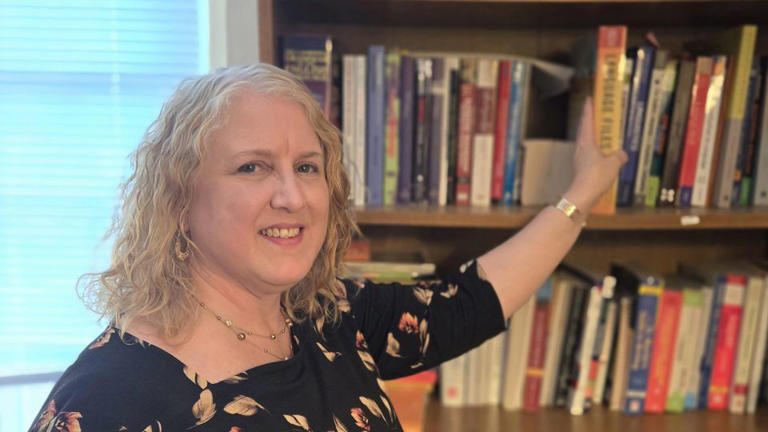
- Share full article
Advertisement
Supported by
Guest Essay
José Andrés: Let People Eat

By José Andrés
Mr. Andrés is the founder of World Central Kitchen.
In the worst conditions you can imagine — after hurricanes, earthquakes, bombs and gunfire — the best of humanity shows up. Not once or twice but always.
The seven people killed on a World Central Kitchen mission in Gaza on Monday were the best of humanity. They are not faceless or nameless. They are not generic aid workers or collateral damage in war.
Saifeddin Issam Ayad Abutaha, John Chapman, Jacob Flickinger, Zomi Frankcom, James Henderson, James Kirby and Damian Sobol risked everything for the most fundamentally human activity: to share our food with others.
These are people I served alongside in Ukraine, Turkey, Morocco, the Bahamas, Indonesia, Mexico, Gaza and Israel. They were far more than heroes.
Their work was based on the simple belief that food is a universal human right. It is not conditional on being good or bad, rich or poor, left or right. We do not ask what religion you belong to. We just ask how many meals you need.
From Day 1, we have fed Israelis as well as Palestinians. Across Israel, we have served more than 1.75 million hot meals. We have fed families displaced by Hezbollah rockets in the north. We have fed grieving families from the south. We delivered meals to the hospitals where hostages were reunited with their families. We have called consistently, repeatedly and passionately for the release of all the hostages.
All the while, we have communicated extensively with Israeli military and civilian officials. At the same time, we have worked closely with community leaders in Gaza, as well as Arab nations in the region. There is no way to bring a ship full of food to Gaza without doing so.
That’s how we served more than 43 million meals in Gaza, preparing hot food in 68 community kitchens where Palestinians are feeding Palestinians.
We know Israelis. Israelis, in their heart of hearts, know that food is not a weapon of war.
Israel is better than the way this war is being waged. It is better than blocking food and medicine to civilians. It is better than killing aid workers who had coordinated their movements with the Israel Defense Forces.
The Israeli government needs to open more land routes for food and medicine today. It needs to stop killing civilians and aid workers today. It needs to start the long journey to peace today.
In the worst conditions, after the worst terrorist attack in its history, it’s time for the best of Israel to show up. You cannot save the hostages by bombing every building in Gaza. You cannot win this war by starving an entire population.
We welcome the government’s promise of an investigation into how and why members of our World Central Kitchen family were killed. That investigation needs to start at the top, not just the bottom.
Prime Minister Benjamin Netanyahu has said of the Israeli killings of our team, “It happens in war.” It was a direct attack on clearly marked vehicles whose movements were known by the Israel Defense Forces.
It was also the direct result of a policy that squeezed humanitarian aid to desperate levels. Our team was en route from a delivery of almost 400 tons of aid by sea — our second shipment, funded by the United Arab Emirates, supported by Cyprus and with clearance from the Israel Defense Forces.
The team members put their lives at risk precisely because this food aid is so rare and desperately needed. According to the Integrated Food Security Phase Classification global initiative, half the population of Gaza — 1.1. million people — faces the imminent risk of famine. The team would not have made the journey if there were enough food, traveling by truck across land, to feed the people of Gaza.
The peoples of the Mediterranean and Middle East, regardless of ethnicity and religion, share a culture that values food as a powerful statement of humanity and hospitality — of our shared hope for a better tomorrow.
There’s a reason, at this special time of year, Christians make Easter eggs, Muslims eat an egg at iftar dinners and an egg sits on the Seder plate. This symbol of life and hope reborn in spring extends across religions and cultures.
I have been a stranger at Seder dinners. I have heard the ancient Passover stories about being a stranger in the land of Egypt, the commandment to remember — with a feast before you — that the children of Israel were once slaves.
It is not a sign of weakness to feed strangers; it is a sign of strength. The people of Israel need to remember, at this darkest hour, what strength truly looks like.
José Andrés is a chef and the founder of World Central Kitchen.
The Times is committed to publishing a diversity of letters to the editor. We’d like to hear what you think about this or any of our articles. Here are some tips . And here’s our email: [email protected] .
Follow the New York Times Opinion section on Facebook , Instagram , TikTok , WhatsApp , X and Threads .

IMAGES
VIDEO
COMMENTS
Know yourself, know how long it takes you to write an essay and how many times you might need to edit it to be satisfied. It doesn't matter whether that one UWC youtuber said you should take 3 months to write the essays, or that maybe that one friend of yours who is really good at essay writing said they wrote them in one day.
Scholarship Essays. MindSumo allows students to solve real-world projects from the world's largest companies. Build highly sought after skills and help fund your degree. Virtual Internships provides students and graduates guaranteed access to remote work placement opportunities in 70+ countries. MindSumo users receive a $100 discount on all ...
"Please write a statement of not more than 300 words explaining why you are interested in attending a UWC school or college. Describe both what you might contribute and what you would hope to gain. If desired, you may include a description of your background, family and any experiences you have had in meeting people from other backgrounds than your own." The UWC movement and mission ...
Heyooo! Here Calypso (UWCD student from Greece/UK/Canada) and I talk about what we wrote on our applications, which activities we had, and give you some advi...
The task portion will tell you what kind of essay you will be writing; whetheryou will take a perspective on the course material, synthesize or apply the ideas of the course in a new way, or come up with something completely new. Use the list of " Important Words in Essay Prompts " below to help you understand which tasks
To help, we'd like to share our five top tips for maximising your chance of success in joining UWC: 1. Get in early. There are a limited number of places available at UWC schools each year. When that number is reached, applications may close. So, finishing your application and hitting that exciting "submit" button early is important.
or relevance of your position. Write out the answer for yourself that best fits your topic. Once you have responses for each piece of the thesis statement, you can try to put them together into one or two sentences that clearly state(s) your idea. One way to start putting your ideas together is by using the "Magic Thesis Statement."
Personal statements give readers (often the faculty or supervisors in the program) the opportunity to get to know applicants better and to learn more about them than their cover letters, résumés, or transcripts convey. They are persuasive pieces of writing, written in first person with a natural voice. A strong personal statement will ...
Step 3: Show us your authentic self. The application is your first opportunity to really shine and show your authentic self. Spend the third day focusing on your life experiences, your interests, hobbies and passions to define what makes you unique and a great candidate to become a UWC IB Diploma Programme student and future change-maker.
The essays are about an incredibly interesting person, also known as, YOU! So do your essays some justice and make them interesting. Share something unique and interesting about yourself. Ask for Help | The application essays may seem simple and easy to answer, but remember you are competing against other exemplary students. Ask friends, family ...
Admissions officers from some of these schools have shared further advice on writing college essays. They work with UWC students frequently and are strong advocates for the UWC movement ...
About Resources. The Presentations team manages all resources the UWC offers, and we are constantly working to keep all our resources up-to-date and inclusive. In the spring of 2020, we initiated a major revision project of our handouts in the interest of making them more inclusive. This work is ongoing, and we invite you to contact us with any ...
Handouts and Online Resources for Students. Writing at the University. Beyond the 5-Paragraph Essay. Writing Tips for Transfer Students. Pre-Writing. Breaking Down Your Reading Assignment. Reading Essay Prompts. Dealing with Writer's Block. Writing: Getting Started.
In a recent poll on the https://t.me/oxianafellows Telegram channel, the majority asked for a video with tips on writing essays that are part of the UWC appl...
Part I: Writing Personal Statements: strategies for composing personal statements, including how to choose what to write about, how to break down essay writing into a manageable series of tasks, and how to avoid common pitfalls. UWC Writing Specialist Lucy Bryan Malenke anticipates your concerns in this video (full of useful slides along the way).
Hi! I recorded this video more than two months ago but things were getting hectic as I need to move across continents for uni and haven't been able to edit i...
Undergraduate Students. The University Writing Center was founded in 1993 to help UT Austin students become more proficient, more versatile, and more confident writers. The UWC can help students from any major, with any writing project, at any point on their college career. Writers of all abilities come here to do what professional writers do ...
The Writing Centers of Texas Tech serve students from all majors and disciplines as they work to develop excellent written communication skills through one-to-one consultations, writing groups, workshops, resources, and other innovative programming. Writers from all backgrounds are empowered to pursue their individualized goals in academic ...
Writing an essay: common mistakes to avoid - Escribir un ensayo: errores comunes que debes evitar (U Del Istmo) 20 most common grammatical errors - Los 20 errores gramaticales más comunes (Excelsior Writing Lab) Transitions in writing - mejorando la escritura: las transiciones (U of Kansas Acceso)
Facilitators will not write papers or be used as proof-readers for homework assignments. Facilitators will, using common tutoring procedures, guide the student writer through the prewriting and drafting processes that lead eventually to the finished essay. The goal is to improve the writer and the writing, not perfect it.
Well what you talk about depends on the essay topics. For my application there were only a few that you talked about the UWC movement etc. this is the statement which you can find on the website. United World Colleges (UWC) is a global movement that makes education a force to unite people, nations and cultures for peace and a sustainable future.
The Undergraduate Writing Center is dedicated to helping undergraduate students succeed in and outside of the classroom. The UWC offers consultations for class assignments and other writing projects, such as scholarship and graduate school applications. The UWC offers face-to-face, synchronous online, and asynchronous consultations.
Prompt 1: Tell a story from your life, describing an experience that either demonstrates your character or helped to shape it. (650 words) Prompt 2: Our families and communities often define us and our individual worlds. Community might refer to your cultural group, extended family, religious group, neighborhood or school, sports team or club ...
Teachers are turning to AI tools and platforms — such as ChatGPT, Writable, Grammarly and EssayGrader — to assist with grading papers, writing feedback, developing lesson plans and creating ...
Meanwhile, while fewer faculty members used AI, the percentage grew to 22% of faculty members in the fall of 2023, up from 9% in spring 2023. Teachers are turning to AI tools and platforms ...
The Israeli government needs to open more land routes for food and medicine today. It needs to stop killing civilians and aid workers today. It needs to start the long journey to peace today.